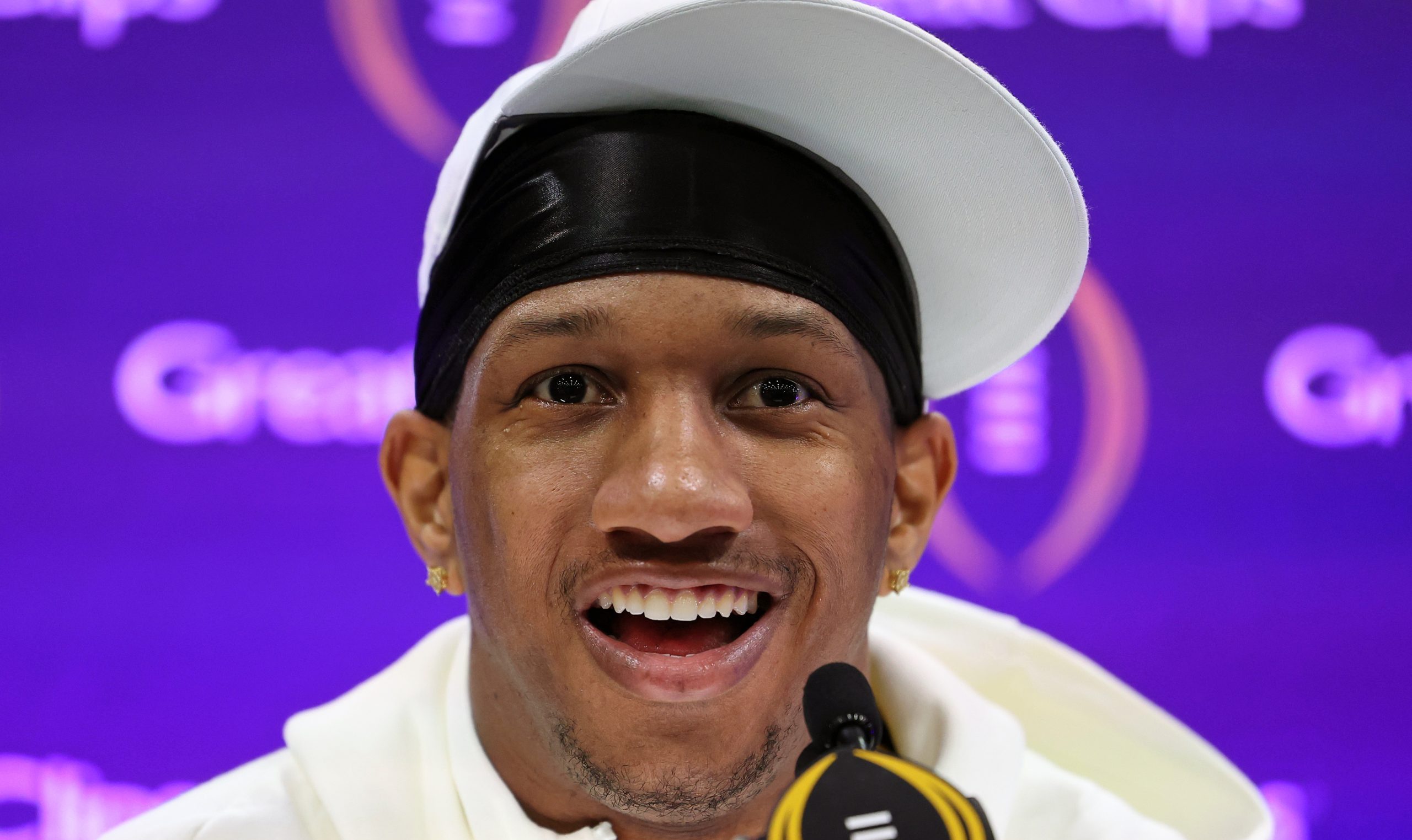This isn’t a case of awful announcing necessarily, as this blog is well known for highlighting, but rather a case of awful media relations that should be taught in classrooms across the country.
The gist of it — Katy Lonergan should have known better than to try and bully a journalist.
The University of Kansas’ Director of Football Communications righfully came under fire this week when it was revealed she informed a reporter with the student newspaper that it would be in his best interests not to ask questions of embattled football coach Charlie Weis at a recent press conference.
Per the Daily Kansan:
“Lonergan said she did not tell Schuster to refrain from asking questions.
“I just simply advised him that if he did ask questions, he should be prepared for any kind of tone in his answer,” she said.”
Why’s that, you ask?
Kansas coach Charlie Weis was apparently upset that the Daily Kansan had been less than flattering in their coverage of the football team. A couple of things to note here – Weis’s Jayhawks are currently 1-4 and are coming off a 40-point trouncing at the hands of in-state rival Kansas State.
In other words, Charlie Weis should’ve known the coverage wasn’t going to be all sunshine and roses. But for as ridiculous as his reaction to this whole situation was, Lonergan and the KU Sports Information Department’s was much, much worse.
Rather than gently remind her notoriously prickly head coach that not all press is good press, Lonergan instead chose to shoot the messenger in hopes that their intimidation tactics would result in more favorable coverage.
While Lonergan’s tactics were hardly surprising — the battle between publicists and journalists has long been one of the communication industry’s testier battles, after all – they’re fairly disturbing.
On the one hand, publicists want desperately to control the message reporters are communicating to the masses, even going so far as to request approval of stories so that they or their clients would be portrayed in a favorable light. On the other, they have to understand that if their clients aren’t doing what they’re supposed to be doing – in this case, winning football games — unflattering stories are going to be penned.
A note to any publicist thinking of using KU’s intimidation tactics – I dare you to try the same thing with me or any other reporter that KU did with the Daily Kansan and see how things work out for you. Because I promise you, as someone who has gotten paid to ask Luke Donald what he’d be doing with a Bachelor’s degree in art theory from Northwestern if he wasn’t really good at golf and White Sox infielder Orlando Hudson about choosing “Call Me Maybe” as his at bat music, I will (respectfully) laugh in your face.
It’s not my or any other reporter’s job to write nice things about the people who play the games. Journalism isn’t public relations and public relations isn’t journalism. And Lonergan should’ve known that the harder she tried to suppress something, the more likely it was to become a story.
The logical thing to do would’ve been to try and calm Weis down, maybe convince him to offer a mea culpa via Twitter after reacting the way he did on his personal feed. After all, a publicist’s job is to make sure the person being interviewed is prepared to answer any and all questions while continuing to appear in a favorable light. It’s certainly not to try and intimidate journalists and dissuade them from asking questions that might not be pre-scripted from a public relations handbook.
Matt Lindner is a columnist for the Chicago Tribune's RedEye and ESPN.com. Follow him on Twitter @mattlindner.








Comments are closed.